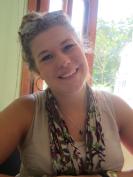Finding a Modern Foreign Languages curriculum fit for the 21st century
 In August 2013 it was revealed that the number of students opting to study Modern Foreign Languages at A-Level had fallen by up to 11% (sources: BBC News; Daily Telegraph). Since the decision to end compulsory languages up to GCSE-level in 2002, this steady decline has presented a major challenge to MFL departments in schools, colleges and universities throughout the UK.
In August 2013 it was revealed that the number of students opting to study Modern Foreign Languages at A-Level had fallen by up to 11% (sources: BBC News; Daily Telegraph). Since the decision to end compulsory languages up to GCSE-level in 2002, this steady decline has presented a major challenge to MFL departments in schools, colleges and universities throughout the UK.
Yet with an ailing economy that is inextricably linked to the fortunes of its international partners, it is vital that the British market is able to liaise effectively with trade partners beyond its national borders. As recently as June 2013, the British Chambers of Commerce cited gaps in language skills and cultural knowledge as the fundamental factor in restricting the exports that are vital to Britain’s economic success (source: British Chambers of Commerce). It is therefore clear that a declining uptake of Modern Foreign Languages in schools presents a challenge not just to the education sector, but to the UK economy as a whole.
As such, it is our aim to encourage the study of languages in schools and colleges through the use of more innovative methods of teaching and learning. We seek to introduce a more student-focused approach, whereby authentic multimodal resources sourced from the country of the target language will become the focal point of the curriculum. Our research will consist of three stages:
1. Observation of teaching methods already employed within UK schools [Completed]
We will be observing teaching styles in a variety of schools in the UK in order to assess how resources are currently being used within the national curriculum, and how effective pupils and students find them. This stage is vital as it will provide direction for the second stage of our research.
2. Collection of resources from the country of the target language [In Progress]
In order for us to provide resources that will make a useful contribution to the linguistic and cultural knowledge of pupils and students, it will be necessary that they are actually sourced in the target language. This is to ensure that both vocabulary and points of interest are up to date, in frequent usage, and can thus actually be employed when using the target language with a native speaker. As students of the French department, we will be visiting Francophone countries such as France and Quebec in Canada, and this will consequently be our target language. All resources will be purchased thanks to the £2000 budget granted to us by the Institute of Advanced Teaching and Learning, and will be shared online with other members of the group via our department’s forum page. This will thus ensure a wider variety of resources are collected.
3. Collation and dissemination of resources [Due Autumn 2014]
Once we have produced a final report to accompany our collection of resources, they will be disseminated via a number of different access points. Copies of the report and resources will be made available on Warwick’s French Department and Institute of Education web pages, and included within the appropriate mailing lists within the university. Compiled resources and findings will also be distributed throughout the Institute of Education to PGCE students who will be able to put them to use during and after they finish their course, as well as to students of the French department who express an interest in the teaching profession. In order to increase access to our research beyond the university we plan to share our findings with the department’s Widening Participation scheme, as well as presenting our findings in the autumn term of 2014 at the Warwick University’s year-round showcase event on teaching at the Teaching Grid.
If you would like to make a contribution to the project, please feel free to get in touch: j dot mercer at warwick dot ac dot uk















